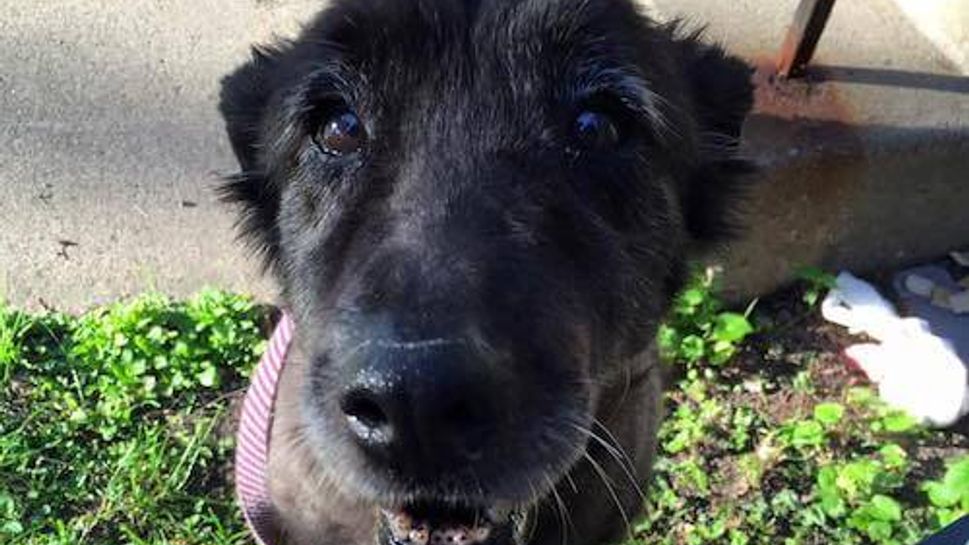The Joy of Fostering a Senior Dog
You and your adopted companion benefit when you open your home
Carol Byers already had two dogs when she decided to foster a third. Byers, an active woman in her early 70s, set her sights on an older pet.
"Like most seniors, I've experienced loss and know how important quality of life is," she says. "To give a senior dog an opportunity to live out life with a loving family, a lap to curl up in, a comfortable bed and tummy rubs, means a lot." (A senior dog is one in the last 25 percent of his or her life; the average lifespan of most breeds is nine to 15 years.)
At a visit to Muttville, a senior dog rescue in San Francisco, a pug/shih tzu named Peggy caught Byers' eye. Peggy's owner had died.
"She was 15 and diagnosed with cancer," Byers says. The dog's life expectancy was another four to six months. Byers agreed to care for the little dog to the end, and the two headed home, where Peggy began a new life with a new name, Penny.
The good life suited Penny, and she wound up enjoying a year and a half with her new family before she died. Saddened but grateful to have given Penny the home she deserved, Byers went on to foster another dog, a 10-year-old recuperating from surgery.
"(Older dogs) give so much in return … they provide the quiet companionship that many senior adults enjoy," she says.
It's tough to be a dog without a home, and being "later in years" can make getting adopted harder. But thanks to volunteers who offer temporary foster homes, many senior dogs are able to live comfortably in a home, either awaiting a new family, or being loved to the end.
Needed: A Place to Call Home
It's hard to imagine why an older dog suddenly ends up homeless. Like many abandoned animals, though, they're often victims of unfortunate circumstances. Sherri Franklin, founder of Muttville, says more than half the dogs she sees had lived in stable, happy homes when their luck changed. "The owner became sick and could no longer take care of them. Or the owner moved into assisted living and couldn't take the dog," she explains.
Most rescue centers lack a physical building to house the animals surrendered to them and rely heavily on foster families to provide housing. While traditional shelters often have kennel space, that environment can be difficult for an older dog, particularly one accustomed to home life.
"The shelter can be a big adjustment for any dog who is surrendered, with so many noises, smells and different types of people and animals," says Pamela Barlow, senior behavior manager at the ASPCA Adoption Center in New York. While she says some senior dogs do adapt, "nothing is more helpful than a foster home."
In a home environment, the dog is more likely to relax and thrive while giving the foster parent a glimpse of his or her true personality. These dogs repay their owners with love and gentle companionship, and often, a needed sense of purpose.
"Some of our foster parents just want something to care for," says Franklin. "They've been caregivers all their life, now their kids are grown, and they have time available."
All Backgrounds Welcome
While past experience with pooches is helpful, it's definitely not required of a foster parent. Most important is a willingness to open your heart and home.
"We love newcomers," says Rachel Mairose, executive director and founder of Secondhand Hounds in Edina, Minn., where a training slideshow helps bring novice dog owners up to speed and staffers with solid dog backgrounds provide positive support along the way.
Specific requirements vary by shelters and rescue groups, but all require proof of a stable, dog-friendly home. No one wants to get a dog settled, only to have a landlord send him packing. A home visit is typically part of the interview process, as is a meeting other pets and humans living there.
1 of 5





Another requirement is the ability and willingness to provide daily exercise. But for the older canine, this need is more low key.
"Most of these dogs are really couch potatoes," says Franklin. "Some are active, but more often they prefer daily strolls. They're used to a senior lifestyle."
In addition to daily care, as a foster parent you may be asked to attend local adoption events or talk with or meet prospective owners.
When Ann Scalf, of San Francisco, was fostering her senior dog Gidget, she took the little pet to adoption events. "It was part of the agreement to help get these dogs homes," Scalf explains.
From a Few Weeks to Forever
As a foster, you'll keep the dog until a permanent home is found; this could be anywhere from a few weeks to months or longer.
"If a dog is high profile, or really cute, he might get adopted quickly," says Mairose. "But often, the older the dog, the longer it takes."
The shelter or rescue you work with may offer an idea of how quickly dogs are being adopted, but it's best to be flexible and ready to accommodate any length of stay.
When a dog has a chronic or terminal diagnosis, his chances at being adopted become even slimmer. But he often has many good days ahead and would gratefully reciprocate any love given. Such dogs are frequently euthanized at overcrowded shelters; long-term foster arrangements can provide a second chance.
Secondhand Hounds has set up a hospice program, reversing the luck for many of these "unadoptable" dogs. Its program matches chronically ill or very elderly dogs into foster homes, where the "parent" has agreed to provide love, care and medical attention for the remainder of the dog's time.
While the dog gets to live out his days with love and dignity, Mairose agrees it's a bittersweet situation. "Our staff tries very hard to be supportive and to recognize these fosters for their super-selfless actions," she says, noting that Secondhand Hounds has a strong network and social media presence to support foster families.
While the nature of foster care can be difficult — you'll share your heart with a dog only to have him leave — many volunteers return again and again.

